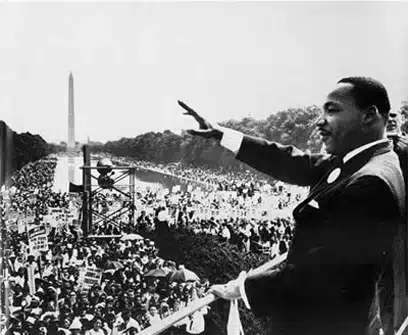Is “Personal Branding” Busted?
I think the reaction is natural in any year where there has been big political turmoil, especially with an American election where so much of the campaigning is based on the personal, the individual, what they represent, and what the voting electorate project onto them or see in them as leaders.
I had always considered my own “Personal Brand” to be made up of my values and decision-making criteria; it’s part of the foundation for how I consider all my actions. But with the rise of politicians such as Donald Trump, whose particular form of Personal Brand is controversial and divisive, there may be a shift in momentum — in the general understanding of what Personal Branding is, and how to manage it.
The Origins Of Personal Branding
The origins of Personal Branding can be traced back even further but for many, it started with a young man named Dale, who left his farming background in Missouri to seek a better life in New York. It was a critical time for the American economy: there was huge urbanisation and mass-production of goods. Because of this, the economy was spinning onto a different platform of money-making, and selling became an industry unto itself. Dale soon recognised that with this new industry came an underlying need for people to improve their communication skills, and soon he began offering public speaking courses.
The Dale in this story, of course, is the now famous Dale Carnegie, who was perfectly placed to observe and capitalise on the cultural evolution that was taking place around him. He set up the Dale Carnegie Institute and published Public Speaking and Influencing Men in Business in 1913. Cars were becoming widespread, electricity and indoor plumbing was on the rise in the middle classes, and the new economy required a different skill set from the worker in America. The movement was characterised by Warren Susman as the shift from a Culture of Character to a Culture of Personality.
This is beautifully described in Susan Cain’s book Quiet. In it, she says that the culture of character was often expressed through words like citizenship, duty, honour reputation, manners and integrity. But during the early twentieth century, Susman identified in contemporary advice manuals a rise in words such as magnetic, fascinating, glowing, dominant, forceful, and energetic that signified a clear shift toward the Culture of Personality.
Personal Branding In The Here And Now
Now, a full hundred years later, there has been another, possibly larger, cultural change with the rise of the internet and social media. Donald Trump’s use of Twitter is an extreme example, and the topic of many a journalistic commentator. This cultural change has brought with it a significant shift in the perception of projecting Personal Brand, which now seems to denote something commercial, monetised, sponsored, and marketeered. The millennial economy is being heavily impacted; Instagram influencers, social media millionaires, and the general narcissism of this age has coloured the evolution of personal branding.
I came across this definition of personal presence from Edwin Friedman, an ordained Rabbi, family therapist, and leadership consultant:
“Presence is the trail of confidence, poise, bearing, calmness, focus, energy one leaves wherever one goes. Be it as a spirit, essence, affective impact that permeates an organisation.
Presence has to do with emotional maturity, the willingness to take responsibility for one’s own emotional being and destiny and is the critical variable in one’s success as a leader” (Friedman 1999, page 7).
Friedman’s stance on the Differentiated Leadership Theory takes the strong view that personal presence comes from a non-anxious position, and a willingness to stand distinct from others, true to core values and character. I believe this description of emotional maturity and taking responsibility encompasses the aspiration of anyone thinking about having a powerful Personal Brand in business. Especially poignant in the times of huge uncertainty and disruption…
Personal Branding For You
If you want to find out more about personal branding then check out our Personal Brand Spotlight. Back in the last quarter of 2009, Harry Freedman wrote the following, in The Guardian:
Your story is not fiction, it is a factual account of how you got to be where you are today. It defines you and it allows you to talk about yourself fluently and with confidence. Everybody has a story, and you do not need to start to write it when you are applying for a job. In fact, the sooner you write it the better.
Personal brand is far from being “busted”, it is more relevant today than ever before. With an increased demand being seen from leaders of all sectors to define and understand their own personal brand, it remains an in demand course that can help professionals regardless of their stage of career development and is often something that benefits hugely from being revisited and refreshed.





